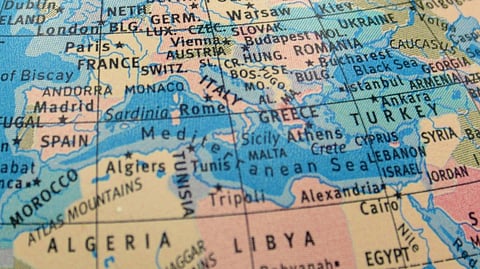

At least four people were killed when two boats carrying 95 illegal illegal migrants capsized off the Libyan coastal city of Al Khums on Thursday, the Libyan Red Crescent said on Saturday.
The first boat was carrying 26 illegal migrants from Bangladesh, four of whom died, the Red Crescent said in a statement on its social media page.
The second boat carried 69 illegal migrants, including two Egyptians and dozens of Sudanese, the Red Crescent added without specifying their fate.
Khums is a coastal city, some 118 kilometres east of the capital, Tripoli.
On Wednesday, the International Organisation for Migration said that at least 42 illegal migrants went missing and presumed dead after a rubber boat sank near the Al Buri oilfield, an offshore facility north-northwest of the Libyan coast.
Libya has become a transit route for illegal migrants fleeing conflict and poverty to Europe across the Mediterranean since the fall in 2011 of dictator Muammar Gaddafi during a NATO-backed uprising.
Pictures released by the Khums Red Crescent showed a line of bodies in black plastic bags laid out on the floor, while the volunteers are seen providing first aid to the survivors.
Other pictures show the rescued illegal migrants wrapped in thermal blankets sitting on the floor.
The statement added that coast guards and Khums Port Security Agency participated in the rescue operation. Adding that the bodies were handed over to the relevant authorities based on instructions by the city’s public prosecution.
In mid-October, a group of 61 bodies of illegal migrants were recovered on the coast west of the capital Tripoli. In September, IOM said at least 50 people had died after a vessel carrying 75 Sudanese refugees caught fire off Libya’s coast.
Several states including Britain, Spain, Norway and Sierra Leone urged Libya last week at a UN meeting in Geneva to close detention centres where activist groups say illegal migrants and refugees have been tortured, abused and sometimes killed.
(Reporting by Ahmed Elumami and Hani Amara; Writing by Hatem Maher and Ahmed Elumami, Editing by Franklin Paul)
